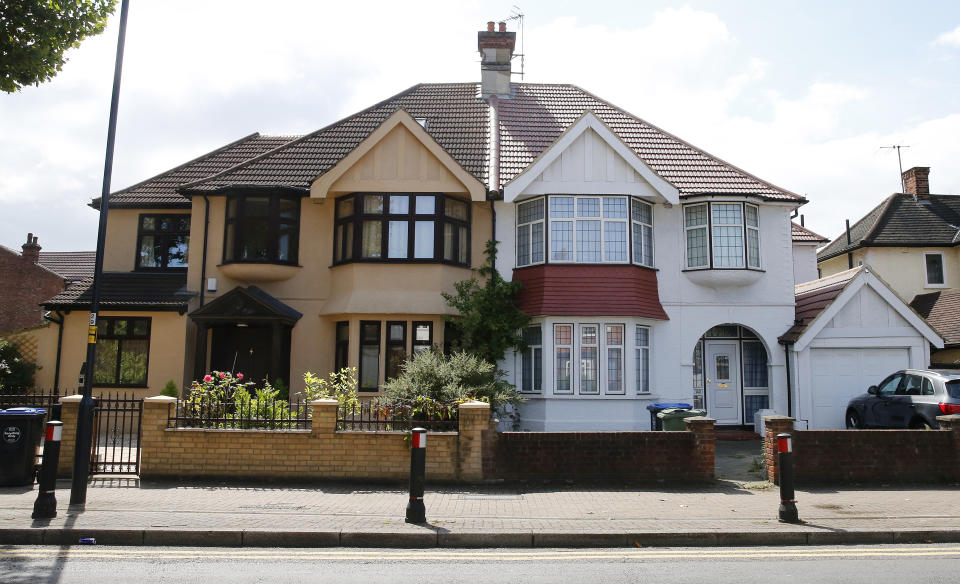London property prices hit new high with talk of exodus 'overblown'

London property prices hit a record high over the summer despite the coronavirus crisis, official figures show.
Analysts said talk of an exodus from the capital appeared “overblown,” as Land Registry data showed average prices rose 3.5% in the year to August.
Homes sold for an average of £489,000 ($642,000) in London in August, a joint record high last seen in July 2017. The growth was significantly higher than than the UK average of 2.5% year-on-year growth. Economists had expected 3% national growth.
It marks a reversal of pre-pandemic trends, with Brexit, affordability and tax reforms dampening demand in London and the south-east in recent years while prices have surged in many areas elsewhere.
Prices in the capital were more than twice as high as the UK average of just over £239,000.
The figures appear at odds with widespread signs many residents are looking to move out of cities. Estate agents say buyers are looking to move to smaller areas with more living and green space in the wake of COVID-19, lockdowns and increased remote working opportunities.
READ MORE: UK sellers ‘too optimistic’ as asking prices hit record high
“House prices in London rose 3.5% year-over-year, slightly above the national average, suggesting that talk of an exodus from the capital is overblown,” said Samuel Tombs, chief UK economist at Pantheon Macroeoconomics.
Marc von Grundherr, director of London estate agent Benham and Reeves, pointed to the role of international buyers, however. “London certainly seems to be picking up the pace despite a reduction in demand due to orders to work from home where possible.
“We’ve seen the green shoots of international demand start to return and it seems as though this is now aiding a house price revival in the capital.”
WATCH: What stamp duty cuts mean for the property market now and next year
A timelag in the data makes it harder to read which drivers were affecting the market at the time, and some prices will reflect sales agreed in the earlier stages of lockdown, potentially before any “exodus” began. The figures are only for August and only cover completed transactions filed with the Land Registry, a process that can take several months after a sale is agreed.
Tombs noted they will also not reflect the boost to prices seen since stamp duty was slashed in England and Northern Ireland. More recent data from lenders and property websites shows a significant uptick in demand, transactions and prices since the tax cuts were announced.
READ MORE: UK inflation accelerated after the Eat Out to Help Out scheme
Chancellor Rishi Sunak trumpeted the temporary stamp duty holiday’s impact in fuelling the market on Wednesday, as separate HMRC figures showed a 21.3% uptick in sales in September.
A Treasury press release said it had “helped protect hundreds of thousands of jobs” in sectors linked to the property market, as homeowners were likely to spend more on decorating, furniture and appliances.
But Matthew Cooper, managing director of Yes Homebuyers, called it “another ill-thought-out attempt by the government to stoke the fires of house price growth.”
He said the industry, from estate agents to lawyers to lenders, had been “overwhelmed” by the scale of demand as buyers and sellers sought to complete before the tax holiday expires in March.
It meant many sales were now seeing “huge delays” after being agreed, raising the risk of non-completion before the deadline.
“Thousands of homebuyers who thought they were due to save thousands in stamp duty, will now be left wondering if this will be the case. For many of them, it won’t and we could see a sharp decline in market health as many pull out of a sale, while others refrain altogether.”
READ MORE: Housebuilder Bellway resuming dividends on record orders
Prices are widely expected to fall when the holiday comes to an end as demand collapses, with many buyers and sellers bringing transactions forwards.
Tombs said declines could be avoided if the holiday were extended, or the government’s low-deposit mortgage plans led to a guarantee scheme being introduced.
“But as things stand, it remains likely that most of the increase in prices since the housing market reopened in May will be reversed over the course of the next 12 months,” he said.
The current surge has “unstable foundations,” added Tombs.
“It partly reflects well-off buyers seeking to buy bigger homes in response to the pandemic, using some of the savings from commuting less and consuming fewer services. This wave of demand likely will be sated soon.
“Meanwhile, demand from first-time buyers likely will be hobbled by declining employment, stagnant wages and the recent jump in mortgage rates.”

